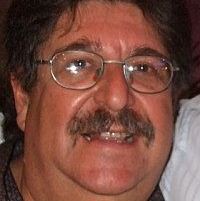Lifestyle/Community
Kaplan to be inducted into Jewish Hall of Fame
South African rugby referee icon Jonathan Kaplan, has been elected to the International Jewish Sports Hall of Fame for 2016.

JACK MILNER
Pictured: The cover of Jonathan Kaplan’s book, Call It Like It Is. Kaplan will be inducted into the Jewish Sports Hall Of Fame at the 2016 Maccabi Games in Israel.
Kaplan, who turned 49 last month, is now the 11th South African to be awarded the honour. He joins Ali Bacher (cricket), Ian Froman (tennis), Okey Geffen rugby), Harry Getz (swimming administrator), Ilana Kloss (tennis), Syd Nomis (rugby), Wilf Rosenberg (rugby), Jody Scheckter (formula 1 motor racing), Joel Stransky (rugby) and Shaun Tomson (surfing) in that elite group.
Kaplan announced his retirement on October 26, 2013 and took charge of the 2013 Currie Cup Final between Western Province and the Natal Sharks as his final domestic league match as referee. His final test match as a referee was on November 16, 2013, when he took charge of the Namibia v Kenya match in the final fixture of the 2013 Namibian Tri-Nations in Windhoek.
“I didn’t become a referee to earn accolades,” said Kaplan on Tuesday. “I did it because I loved it. Having said that, it is wonderful to be recognised in this way. It is a great honour.”
It is particularly difficult to get a South African into the International Jewish Hall of Fame as the majority of the committee are made up of Americans and sports such as rugby and cricket are not that relevant to them.
Tose honoured include Nicholas Massu, whose 2004 Olympics singles and doubles tennis championships marked Chile’s first-ever Olympic gold medals, International volleyball coaching icon Arie Selinger, 1952 Hungarian Olympic swimming gold medallist Judit Temes and Azerbaijan’s 1952 Olympic gold medal gymnast Galina Urbanovich.
They are joined by American sportscaster Al Michaels, All-Star baseball catcher Mike Lieberthal, National Hockey League commissioner QaIy Bettman and 1924 World Bantamweight boxing champion Abe Goldstein.
The Hall of Fame museum is situated in Netanya, Israel, at the Wingate Institute.
“Our formal quadrennial Hall of Fame inductions will take place in July 2017 at the start of the World Maccabi Games, when Jewish sportsmen and leaders from numerous countries are in Israel,” said Joe Siegman, chairman of the selection committee.
Kaplan is the most experienced Test referee of all time. He became the first referee to reach the milestone of 50 Test matches when he refereed the Scotland v Ireland game during the 2009 Six Nations Championship, and has since increased his total to 68 Tests.
He also holds the record for refereeing the most Tests involving a single team. The New Zealand v Wales game in June 2010 was his 17th involving the host nation, surpassing the record of 16 matches previously held jointly by Welshman Derek Bevan (also refereeing New Zealand) and New Zealander Paul Honiss (refereeing Australia).
Other refereeing records held by Kaplan are: most Bledisloe Cup matches (7), most Tri-Nations matches (7), most Six Nations matches (16). He is the only referee to have participated in four British and Irish Lions tours and to have had charge of matches in all three tour countries (Free State v B&I Lions, South Africa 1997; 2nd Test, Australia 2001; 3rd Test, New Zealand 2005; Natal Sharks v B&I Lions, South Africa 2009).
Kaplan also holds South African refereeing records for most Rugby World Cup appearances (four – 1999, 2003, 2007, 2011) and most World Cup games (13), the most Super 14 games (75, including three finals and four semifinals), and most Currie Cup matches (133, including five finals and four semifinals).
He is the only person to have won the award as South African Referee of the Year for four years in succession (200 – ‘07).
Kaplan began refereeing in 1984, while still t high school. He made his first-class debut in 1991 and was appointed to South Africa’s national panel of referees in 1993.On May 4, 1996 he made his international debut in a match between Namibia and Zimbabwe in Harare.
At the moment he is not directly involved in day-to-day rugby. “After I retired I spent some time writing my book which was released last year. Other than that I have been lecturing and doing motivational speeches.”
His book, Call It Like It Is” The Jonathan Kaplan Story, has done very well in this country but at this stage he has no thoughts of getting it released outside of South Africa.